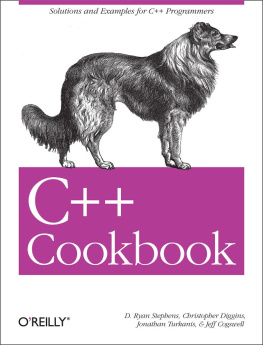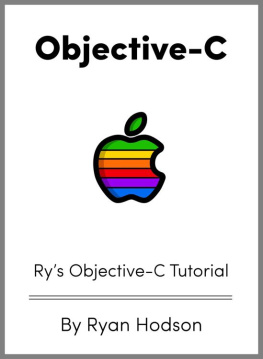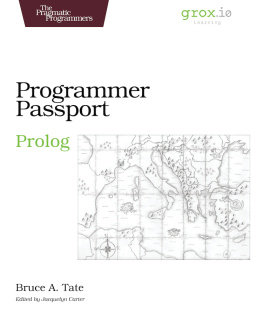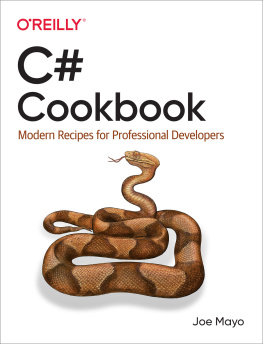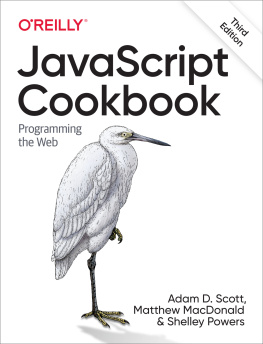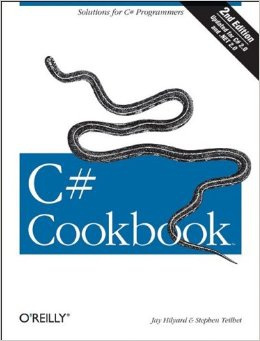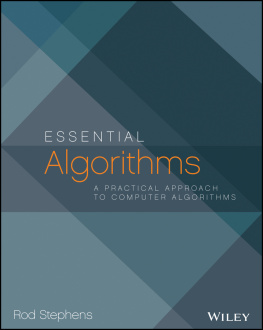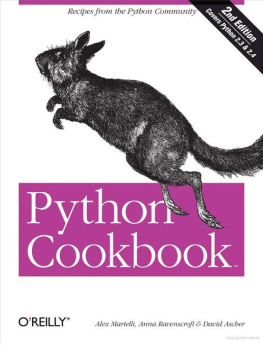Supplemental files and examples for this book can be found at http://examples.oreilly.com/9780596007614/. Please use a standard desktop web browser to access these files, as they may not be accessible from all ereader devices.
All code files or examples referenced in the book will be available online. For physical books that ship with an accompanying disc, whenever possible, weve posted all CD/DVD content. Note that while we provide as much of the media content as we are able via free download, we are sometimes limited by licensing restrictions. Please direct any questions or concerns to .
Preface
C++ runs on virtually every platform and in an infinite number of applications. If you bought or might buy this book, you are probably an engineer or researcher writing one of these applications. But regardless of what you are writing and what platform you are targeting, odds are that you will be re-solving many of the same problems that other C++ programmers have been solving for years. What we have done in this book is solve many of these common problems and explain each of the solutions.
Whether you have been programming in C++ for years or are relatively new to the language, you are probably familiar with the things you have rewrite on each new project: Date and time parsing/arithmetic, manipulating string and text, working with files, parsing XML, using the standard containers, and so on. These are the kinds of problems this book contains solutions for. In some cases (e.g., date and time arithmetic), the standard library contains very little support. In others (e.g., string manipulation) the standard library contains functionally rich classes, but it cant do everything and some very common tasks are cumbersome.
The format is straightforward. Each recipe has a problem statement and a code solution, and most have a discussion that follows. We have tried to be pragmatic and solve the problems at hand without digressing too far, but in many cases there are related topics that are so useful (or just cool) that we have to provide a page or two of explanation.
This is a book about solving common problems with C++, but not a book about learning C++. We assume that you have at least a basic knowledge of C++ and object-oriented programming. In particular, it will be helpful if you have at least some familiarity with:
C++ inheritance and virtual functions
The standard library
Components of the Standard Template Library (containers, iterators, and algorithms)
Templates
These are not strict prerequisites for reading this book, but having at least a basic knowledge of them will help.
About the Examples
In crafting our code examples, we strove for simplicity, portability, and performance. The design for each solution followed a similar path: use standard C++ (language or library) if possible; if not, use a de facto standard as the replacement. For example, many of the recipes that deal with strings use the standard string class, and most of the mathematical and scientific recipes use standard numeric types, containers, and templates. The standard library has strong support for these areas, so standard facilities are a perfect fit. By comparison, however, C++ has little or no standardized support for multithreading or XML parsing. Thus, we used the multithreading support provided in the Boost Threads library and the XML parsing functionality provided by the Xerces parser.
Often, there are many ways to do the same thing in C++, which gives developers flexibility, but also invites some controversy. Most of the examples illustrate the best general solution we could come up with, but that doesnt mean that its the best solution ever. If there are alternative solutions that are better in some ways and not as good in others (maybe the solution that uses the standard library is awkward or unintuitive; in this case, we may provide an alternative that uses Boost), we present the alternative anyway to give you some insight into the various solutions that are available.
Lots of the examples use templates. If you dont have much experience writing templates, you should get some soon. There is very little introductory material on templates in this book, except for two recipes in . Most of the interesting developments in C++ are in the areas of template metaprogramming and policy-based design.
At the time of this writing, there is a lot of movement in the C++ community. The first technical report (called TR1) is more or less stable. It is a standardized list of features that will be eventually added to the next version of the C++ standard. It is not required that standard library implementations support it, but many vendors have already begun implementing TR1 and you can expect to see it appearing in shipped compilers soon. Many of the libraries in TR1 first appeared in the Boost project.
We use libraries from Boost a lot. Boost is a set of open source, peer-reviewed, portable libraries that fill in many of the gaps in the standard library. The current version as of this writing is 1.32, and 1.33 should be out any time now. We provide many pointers to specific Boost libraries in the examples. For more information on Boost in general, check out the project web site at www.boost.org.
Conventions Used in This Book
The following typographical conventions are used in this book:
ItalicIndicates new terms, URLs, email addresses, filenames, file extensions, pathnames, directories, Unix utilities, commands, and command-line parameters.
<...>
Angle-brackets surround elements that you need to specify in commands and command-line parameters when those elements appear inline, in italics.
Constant widthIndicates code or fragments thereof. For example, class names, method names, and the like are rendered in constant width whenever they appear in the text.
Constant width boldShows user-input in mixed, input/output examples.
Constant width italicIndicates user-specified items in syntax examples.
Tip
Indicates a tip, suggestion, or general note.
Warning
Indicates a warning or caution.
Using Code Examples
This book is designed to help you get your job done. In general, you may use the code in this book in your programs and documentation. You do not need to contact us for permission unless youre reproducing a significant portion of the code. For example, writing a program that uses several chunks of code from this book does not require permission. Selling or distributing a CD-ROM of examples from OReilly books does require permission. Answering a question by citing this book and quoting example code does not require permission. Incorporating a significant amount of example code from this book into your products documentation does require permission.

